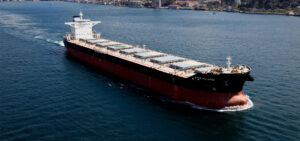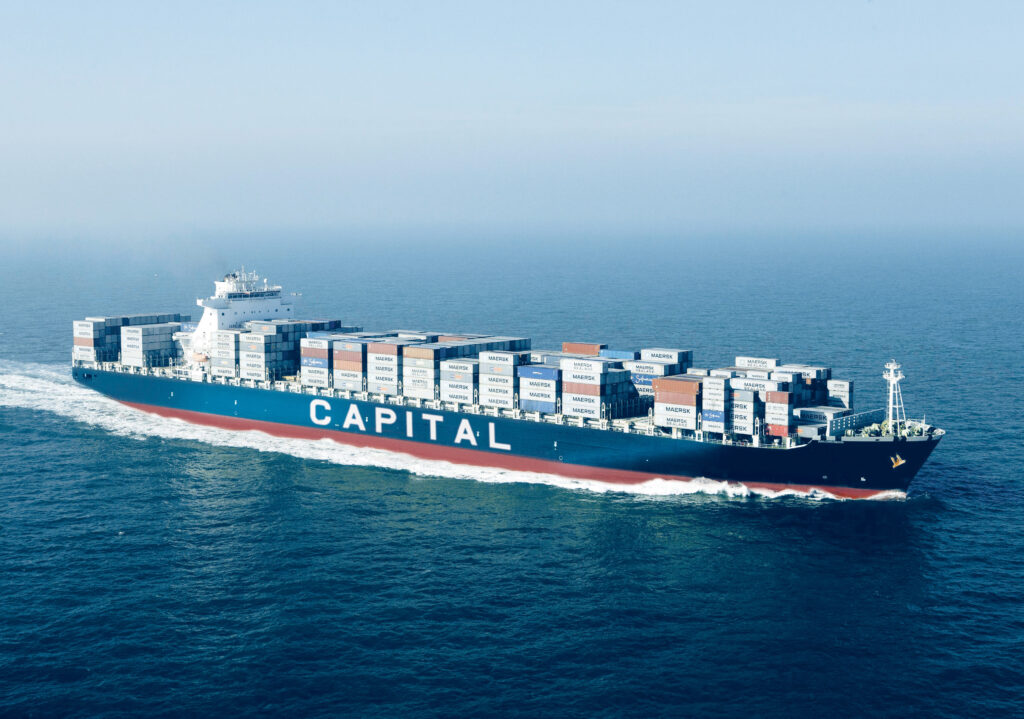– We aspire to be front runners in the industry’s efforts to reduce GHG emissions and lead by example by applying new technologies and forming alliances that aim to decarbonize the industry. ShipFC is a good example of how this can be done, and we are happy to be part of this important project, says Technical Manager Fleet A in Star Bulk, George Mantalos.
Star Bulk and Capital are both operators for replication use cases in the ShipFC-project, and will be involved in studies performed on three vessel types and operational profiles, including 20+MW systems, to illustrate the ability to transfer the ammonia fuel cell technology to different segments of the shipping industry.

Constructive cooperation
— We enjoy working together with the academic community and the ‘green’ projects community in the ShipFC project and our cooperation with all parties involved has been excellent, thought-provoking, and constructive. We gain insights into future technologies, which is very important, as we are called upon to make informed decisions about our strategy regarding emissions management of our existing and newbuilding fleet, says Chief Communication Officer in Capital, Niki Kalogiratou.
Capital Ship Management Corp and Capital-Executive Ship Management (‘Capital’) offer comprehensive services in every aspect of ship management, currently operating a fleet of 86 vessels including 45 tankers (12 VLCCs, 1 Suezmaxes, 5 Aframaxes, 26 MR/Handy product tankers and 1 small tanker), 27 container carriers and 4 modern bulk carriers with a total DWT of 10 million tons approx.. The company has approximately 2000 employees.
— Our participation in the project fulfills environmental and social criteria in the context of our ESG policies. We gain a lot of satisfaction from transforming the data derived from vessels transporting goods, which is a purely commercial activity, into a venture with a broader significance, constructing a ‘test’ vessel for ammonia fuel cell technology. We are looking forward to progressing the project in the coming years to a successful outcome, says Kalogiratou.
R&D dialogue vital
The global shipping company Star Bulk provides high quality worldwide seaborne transportation solutions in the dry bulk sector. With executive offices in Athens and in Limassol, Star Bulk’s vessels transport major bulks, which include iron ore, coal and grain, and minor bulks which include bauxite, fertilizers, and steel products. On a fully delivered basis the Star Bulk fleet will comprise of 128 modern vessels built in world-class shipyards and with an average age of approximately 9 years. Fleet composition is highly diversified ranging from Supramax vessels to Newcastlemax vessels and has a total capacity of more than 14 million DWT.
Active participation in R&D programs, green technology, and alternative fuels initiatives is an integrated part of their company strategy, in which Star Bulk especially sees the ongoing dialogue with top-notch researchers from project partners as vital.
– Star Bulk believes that in addition to following regulations and laws, we need to actively share knowledge and ideas to further improve and reduce the industry’s environmental footprint. With the current ambitions in the EU and IMO we need to act quickly and work together to reach our goals. Therefore, the dialogue and cooperation between researchers and shipping companies happening in ShipFC is highly appreciated, says Mantalos.
Ammonia – a potential game-changer
The worldwide shipping industry sees ammonia as a potential game-changer. But the technology is not yet fully tested and ready to be implemented in existing and newbuild vessels. The ShipFC will therefore play a significant role in this puzzle.
— The ShipFC project gives us the opportunity to contribute our container vessels’ data in order to create a ‘test vessel’ operating on the basis of ammonia fuel cell technology. We also benefit from the implementation of the project’s findings into our extensive new building programme. Ammonia is already being used in the shipping industry, in a number of dual fuel vessels, as an alternative ‘green’ fuel. It is one of the strong candidates to succeed in the ‘transition’ towards a greener global economy, says Kalogiratou.

